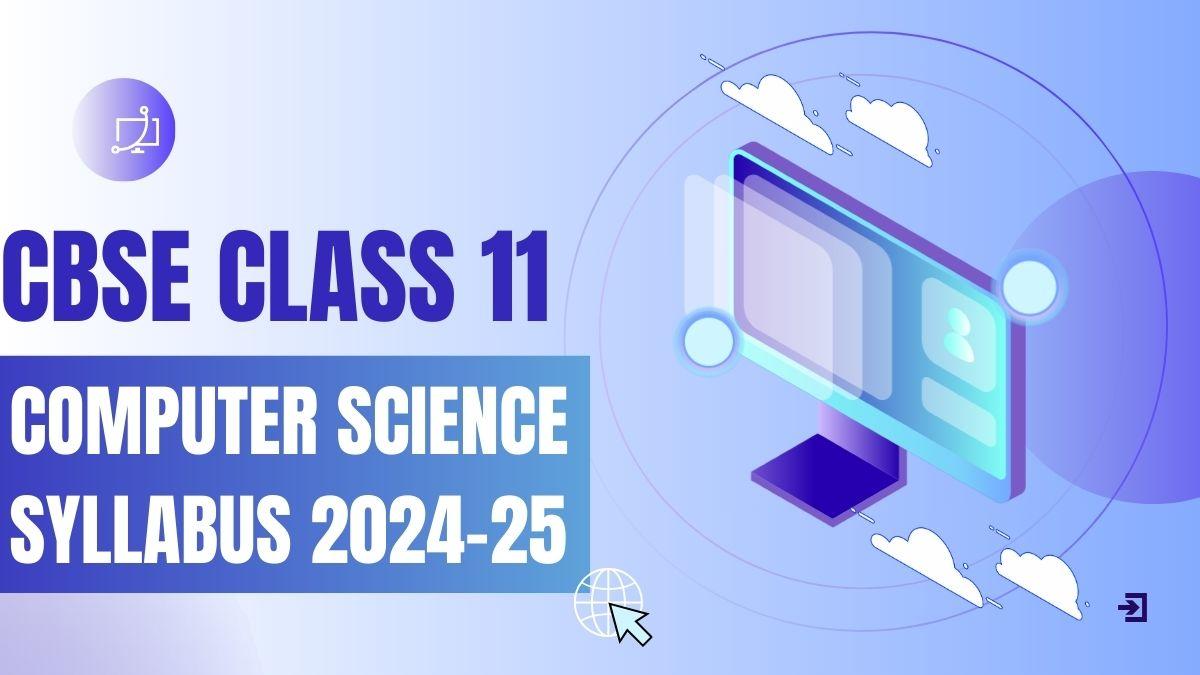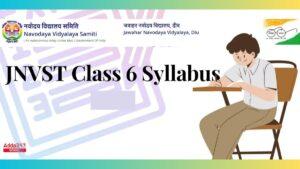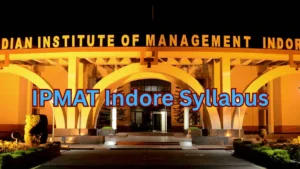The CBSE, the apex school education board in India, has released the syllabus for all the subjects taught in class 9th to 1th on its official website. In this process, the CBSE Class 11 Computer Science syllabus 2024-25 has also been officially published at cbseacademic.nic.in. The official syllabus serves as a credible resource in the preparation journey of a student. To help students score good marks in the exam, we are providing the detailed CBSE Class 11 Computer Science Syllabus 2024-25 here.
CBSE Class 11 Computer Science Syllabus 2024-25
The CBSE Class 11 computer science syllabus 2024-25 has been designed meticulously by the experts to provide technical prowess to the students. Computer Science has become a vital component of the contemporary world. CBSE has developed a detailed curriculum for Class 11 to provide students with essential computational thinking and programming skills. This article gives an in-depth look at the CBSE Class 11 Computer Science curriculum for the academic year 2024-25.
CBSE Class 11 Computer Science Syllabus 2024-25 Overview
The CBSE 11 Class Computer Science Syllabus includes a variety of subjects, ranging from fundamental computational thinking to more complex topics like algorithms, data structures, and operating systems. The syllabus aims to provide students with a strong base in computer science and ready them for advanced studies in the subject. By practicing all the topics given in the CBSE Class 11 Computer Science Syllabus 2024-25, students can be ensured to get excellent marks in the annual examinations.
CBSE Class 11 Computer Science Paper Pattern 2024-25
The CBSE class 11 computer science paper has the total weightage of 100 marks. Out of the 100 marks allocated for the paper, 70 marks is awarded on the basis of theory examination while 30 marks is kept aside for the practical exam/internal assessment. The subject code for the CBSE class 11 computer science subject is 083. Students can check the detailed paper pattern below for both theory exam and internal assessment below.
CBSE Class 11 Computer Science Theory Paper Pattern 2024-25
As per the official CBSE class 11 computer science syllabus 2024-25, check the theory paper pattern below.
|
Unit No
|
Unit Name
|
Marks
|
Periods
|
|
|
Theory
|
Practical
|
|||
|
1
|
Computer Systems and Organisation
|
10
|
10
|
10
|
|
2
|
Computational Thinking and Programming -1
|
45
|
80
|
60
|
|
3
|
Society, Law, and Ethics
|
15
|
20
|
–
|
|
Total
|
70
|
110
|
70
|
|
CBSE Class 11 Computer Science Internal Assessment 2024-25
Review the assessment plan for internal evaluations. According to the grading system, students must participate in 30 marks worth of internal assessments that come in various formats and serve multiple purposes. Ensure you understand the assessment criteria for the 30 marks.
|
S. No
|
Unit Name
|
Marks (Total=30
|
|
1
|
Lab Test (12 marks)
|
|
|
Python program (60% logic + 20% documentation + 20% code quality)
|
12
|
|
|
2
|
Report File + Viva (10 marks)
|
|
|
Report file: Minimum 20 Python programs
|
7
|
|
|
Viva voce
|
3
|
|
|
3
|
Project (that uses most of the concepts that have been learnt)
|
8
|
CBSE Class 11 Computer Science Detailed Syllabus 2024-25
The official detailed syllabus for the CBSE class 11 computer science for academic session 2024-25 has been provided below chapter-wise.
|
Units Name with Topics |
Computer Systems and Organisation
|
Computational Thinking and Programming – I
|
Society, Law and Ethics
|
CBSE Class 11 Computer Science Syllabus 2024-25 PDF
The syllabus for CBSE Class 11 Computer Science is extensive and covers various Computer Science topics. The syllabus aims to assist students in acquiring the necessary skills and knowledge to effectively utilize information technology in both personal and professional contexts. Download the official syllabus pdf released by the board below for free.
Download CBSE Class 11 Computer Science Syllabus 2024-25 PDF









 CUET BEd Syllabus 2026, Check Subject Wi...
CUET BEd Syllabus 2026, Check Subject Wi...
 Navodaya Syllabus for 6th Class PDF Down...
Navodaya Syllabus for 6th Class PDF Down...
 IPMAT Indore Syllabus 2026: Section-wise...
IPMAT Indore Syllabus 2026: Section-wise...









